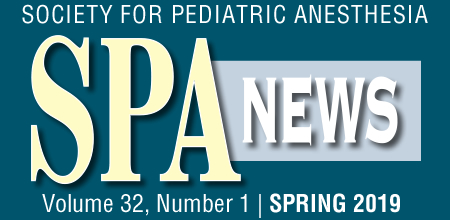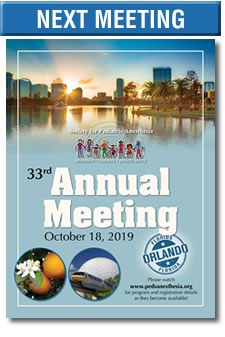The Women’s Empowerment and Leadership Initiative: Advancing Pediatric Anesthesiology Through Gender Equality
By Jennifer K. Lee, MD; Jamie M. Schwartz, MD; Nina Deutsch, MD
Drive. Ambition. Discipline. Brilliant potential for leadership. Though this describes so many women in our field, gender gaps in pay, promotion and leadership persist. Survey data indicate that women anesthesiologists earn 13% less per hour than their male colleagues in the United States. This discrepancy holds after adjusting for the number of working hours, experience, having children, marital status, geographic location and employment by a group practice.
Promotion and leadership in anesthesiology are also skewed. Recent studies show that less than 8% of women anesthesiology faculty are professors, whereas 17% of male anesthesiologists reach the professor rank. Less than 15% of anesthesiology department chairs are women. The proportion of women chairs has not increased from 2006 to 2017.
Now, combine the hourly pay discrepancy with the slower promotion trajectory of women. Small, single-digit differences in salary coupled with longer time to promotion can cause more than half a million dollars in lost accumulated wealth per person. This includes lifetime retirement and investment savings.
It is well known that organizations become stronger when women contribute to missions and leadership. So why does this gender discrepancy persist? The reasons are complex and multi-factorial. But no matter the cause, the problem must be fixed.
SPA recently launched the Women’s Empowerment and Leadership Initiative (WELI) to help address this problem. WELI’s mission is: Empowering highly productive women to achieve promotion, leadership and equity in pediatric anesthesiology.
WELI was founded by Dr. Jennifer Lee in June 2018 with strong support from the SPA Board of Directors. She was quickly joined by co-chairs Drs. Nina Deutsch and Jamie Schwartz and a highly motivated steering committee: Drs. Laura Diaz-Berenstain, Randy Flick, Helen Lee, John Fiadjoe, Genie Heitmiller, Shobha Malviya, Anita Honkanen and Franklyn Cladis.
Our pilot program has been fueled by more than 90 people dedicated to working towards gender equity. We launched WELI using a three-tiered system:
1. We connect established leaders, coaches, and mentors in our field to women faculty who seek promotion and leadership. The women must be nominated by their department chairs and division chiefs to participate in WELI as a coachee/mentee.
- To date, 51% of the WELI coaches/mentors are men.
- Our long-term goal is to support multi-dimensional coaching and mentoring networks that extend beyond single coach/mentor and single coachee/mentee dyads.
2. We host workshops on leadership skills for WELI participants. Topics include coaching, mentoring, delegation, accountability, time management, prioritization, establishing team missions, difficult conversations, facilitating change, networking and negotiation. Our past three workshops were led by certified executive coaches. The reviews have been overwhelmingly positive.
3. We disseminate information about professional gender differences in our field. Drs. Schwartz, Deutsch and Lee spoke in “The Anesthesia Workforce: Gender, Race and Equity” panel at the SPA conference in Houston, Texas.
Based on our pilot program’s success, we are slowly and incrementally growing WELI as we monitor basic outcome metrics. These include how often coaches and mentees interact and their self-rated quality of these interactions. We also assess characteristics that are known to be essential for successful, transformative leadership to help participants identify areas for self-improvement.
If you are interested in serving as a WELI coach or if you want your institution to participate in WELI, please contact Drs. Jenny Lee (jennifer.lee@jhmi.edu), Nina Deutsch (NDeutsch@childrensnational.org), Jamie Schwartz (jamie.schwartz@jhmi.edu), or any member of the WELI steering committee.
As the number of women physicians in anesthesiology grows, we must work together for gender equality. WELI is one approach. We applaud and hope to combine forces with the other coaching and mentoring programs in our field. Together, we can strengthen and advance pediatric anesthesiology through achieving gender equity.
References
- American Association of Medical Colleges Faculty Roster, Dec 2015.
- Baird M, et al. Regional and gender differences and trends in the anesthesiologist workforce. Anesthesiology 2015; 123: 997-1012.
- Bissing MA, et al. Status of women in academic anesthesiology: a 10-year update. Anesthesia & Analgesia 2019; 128: 137-143.
- Rao AD, et al. Association of a simulated institutional gender equity initiative with gender-based disparities in medical school faculty salaries and promotion. JAMA Netw Open 2018; 1: e186054. doi: 10.1001/jamanetworkopen.2018.6054.






